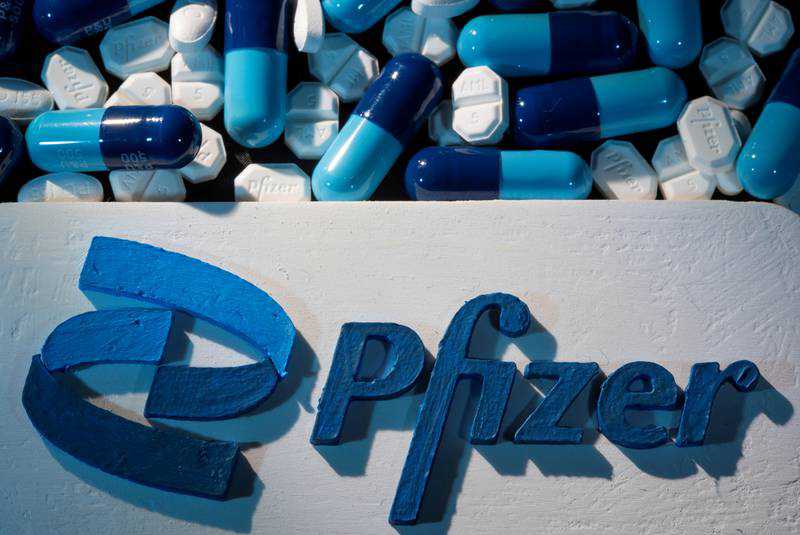Pfizer trials show its antiviral pill cuts risk of severe Covid-19 by 89%
06 November, 2021

The makers of an antiviral pill for Covid-19 have said they stopped a trial after the drug was shown to cut by 89 per cent the chances of hospital admission or death for adults at risk of developing severe disease.
Pfizer said it plans to submit interim trial results for its pill, which is given in combination with an older antiviral called ritonavir, to the US Food and Drug Administration as part of the emergency-use application it opened in October.
The combination treatment, which will have the brand name Paxlovid, consists of three pills given twice daily.
The planned analysis of 1,219 patients in Pfizer's study looked at hospital admission and death among people diagnosed with mild to moderate Covid-19 with at least one risk factor for developing severe disease, such as obesity or older age.
It found that 0.8 per cent of those given Pfizer's drug within three days of symptom onset were taken to hospital and none died within the 28-day period after treatment. That compared with a hospital admission rate of 7 per cent for placebo patients. There were also seven deaths in the placebo group.
Rates were similar for patients treated within five days of showing symptoms – 1 per cent of the treatment group was taken to hospital, compared with 6.7 per cent for the placebo group, which included 10 deaths.
The results appear to be even better than Merck & Co's pill, molnupiravir, which last month was shown to halve the likelihood of dying or being admitted to hospital for Covid-19 patients also at high risk of serious illness.
Full trial data is not yet available from either company.
Antivirals need to be given as early as possible, before an infection takes hold, to be most effective. Merck tested its drug within five days of symptom onset.
"We saw that we did have high efficacy, even if it was five days after a patient has been treated ... people might wait a couple of days before getting a test ... and this means that we have time to treat people and really provide a benefit from a public health perspective," Annaliesa Anderson, head of the Pfizer programme, told Reuters.
The company did not give details of any side effects of the treatment but said adverse events happened in about 20% of both treatment and placebo patients.
"These data suggest that our oral antiviral candidate, if approved by regulatory authorities, has the potential to save patients’ lives, reduce the severity of Covid-19 infections and eliminate up to nine out of ten hospitalisations,” said Albert Bourla, Pfizer's chief executive.
Pfizer said it was expecting to produce more than 180,000 packs by the end of the year and at least 50 million packs by the end of 2022, of which 21 million would be produced in the first half.
"We are currently bringing on additional capacity and ramping up further and we look forward to updating these numbers in the coming weeks," the company said.
Infectious disease experts say that preventing Covid-19 through wide use of vaccines remains the best way to control the pandemic but only 58 per cent of people in the US, for example, are fully vaccinated and access in many other parts of the world is limited.
Pfizer's drug, part of a class known as protease inhibitors, is designed to block an enzyme the coronavirus needs to multiply.
The company is also studying whether its pill could be used by people without risk factors for serious Covid-19, as well as to prevent coronavirus infection in people exposed to the virus.
Source: www.thenationalnews.com
